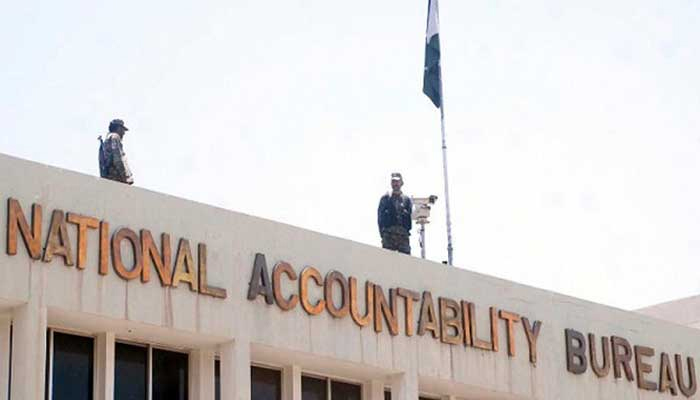Relevant courts, not NAB, to decide reopening of corruption cases
Source says respective courts will now decide on basis of SC's recent judgment, which struck down most of amendments to NAB law
ISLAMABAD: Re-opening of corruption cases, which were decided or returned following the PDM government’s amendments to NAB law, will be the decision of the respective courts.
Informed NAB source told The News on Thursday that the Bureau simply referred back all those cases, which were decided or returned by the courts following the NAB law amendments by the last Parliament during the PDM government, to the respective courts.
The source explained that the respective courts will now decide on the basis of the Supreme Court’s recent judgment, which struck down most of the amendments to the NAB law, about the re-opening of these closed or decided cases.
The NAB, it is said, is not to decide which of the cases, decided or returned by the courts, will be reopened. The NAB will only decide about the re-opening of the inquiries and investigations which were closed by it following the NAB amendments, made in 2022.
In case of closed inquiries and investigations, only those will be re-opened which fall within the limits of the SC’s decision. The Supreme Court, it is said, did not strike down all the amendments, therefore, a hectic exercise is to be carried out by the Bureau to identify those inquiries and investigations which stand re-opened in the light of the apex court’s decision.
It may take a couple of months to complete this exercise. According to media reports, the anti-corruption watchdog has submitted the record of all cases to the court to the respective court.
Although the media claims that hundreds of cases have been re-opened and these include the high profile cases of Asif Ali Zardari, Mian Nawaz Sharif, Mian Shehbaz Sharif, Senator Yusuf Raza Gilani, Raja Pervez Ashraf, Shahid Khaqan Abbasi, Ishaq Dar, former chief ministers of Sindh, Punjab as well as dozens of former federal and provincial ministers.
The Supreme Court had declared the PTI chairman’s petition against the NAB amendments admissible and declared 9 out of 10 amendments void. In its decision, the SC had said the cases of all persons sitting in public positions are restored. The NAB amendments related to termination of reference of public office holders were declared null and void, and the first amendment to Section 10 and Section 14 of the NAB amendments was also declared null and void.
The apex court, with a majority of 2 to 1, had ordered the reopening of all corruption cases worth less than Rs500 million that were previously closed against political leaders from various parties and public office holders. Furthermore, the SC had directed the National Accountability Bureau (NAB) to return all case records to the relevant courts within seven days. The court has also invalidated the judgments issued by the accountability courts based on the amended laws. “All inquiries, investigations, and references that were disposed of based on the struck-down sections are reinstated to the positions they held before the enactment of the 2022 Amendments and shall be considered pending before the relevant fora,” read the SC decision, which is considered a setback for major parties especially PMLN and PPP leadership whose cases will be revived.
-
 JoJo Siwa Shares Inspiring Words With Young Changemakers
JoJo Siwa Shares Inspiring Words With Young Changemakers -
 James Van Der Beek Loved Ones Breaks Silence After Fundraiser Hits $2.2M
James Van Der Beek Loved Ones Breaks Silence After Fundraiser Hits $2.2M -
 Disney’s $336m 'Snow White' Remake Ends With $170m Box Office Loss: Report
Disney’s $336m 'Snow White' Remake Ends With $170m Box Office Loss: Report -
 Travis Kelce's Mom Donna Kelce Breaks Silence On His Retirement Plans
Travis Kelce's Mom Donna Kelce Breaks Silence On His Retirement Plans -
 Premiere Date Of 'Spider-Noir' Featuring Nicolas Cage Announced
Premiere Date Of 'Spider-Noir' Featuring Nicolas Cage Announced -
 Pedro Pascal's Sister Reveals His Reaction To Her 'The Beauty' Role
Pedro Pascal's Sister Reveals His Reaction To Her 'The Beauty' Role -
 Kate Middleton Proves She's True 'children's Princess' With THIS Move
Kate Middleton Proves She's True 'children's Princess' With THIS Move -
 Paul Anka Reveals How He Raised Son Ethan Differently From His Daughters
Paul Anka Reveals How He Raised Son Ethan Differently From His Daughters -
 'A Very Special Visitor' Meets Queen Camilla At Clarence House
'A Very Special Visitor' Meets Queen Camilla At Clarence House -
 Jodie Turner Smith Shares One Strict Rule She Follows As A Mom
Jodie Turner Smith Shares One Strict Rule She Follows As A Mom -
 Hailey Bieber Reveals KEY To Balancing Motherhood With Career
Hailey Bieber Reveals KEY To Balancing Motherhood With Career -
 Photo Of Jay-Z, Other Prominent Figures With Jeffrey Epstein Proven To Be Fake
Photo Of Jay-Z, Other Prominent Figures With Jeffrey Epstein Proven To Be Fake -
 Hillary Clinton's Munich Train Video Sparks Conspiracy Theories
Hillary Clinton's Munich Train Video Sparks Conspiracy Theories -
 Fans Slam Talk Show Host For 'cringe' Behavior In Chris Hemsworth Interview
Fans Slam Talk Show Host For 'cringe' Behavior In Chris Hemsworth Interview -
 Woman Jailed Over False 'crime In Space' Claim Against NASA Astronaut
Woman Jailed Over False 'crime In Space' Claim Against NASA Astronaut -
 James Van Der Beek’s Close Pal Reveals Family's Dire Need Of Donations
James Van Der Beek’s Close Pal Reveals Family's Dire Need Of Donations




